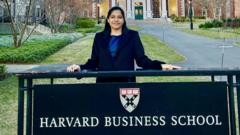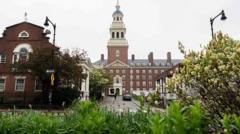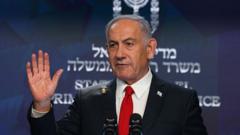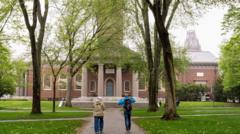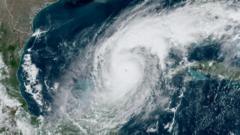The ruling underscores the ongoing legal battle between Harvard and the White House over immigration and educational autonomy.
**Judge Halts Trump's Move Against Harvard's Foreign Student Enrollment**
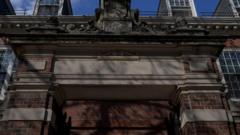
**Judge Halts Trump's Move Against Harvard's Foreign Student Enrollment**
A federal judge intervenes to block the Trump administration's efforts to restrict Harvard's enrollment of international students.
In a significant legal development, a federal judge has temporarily halted the Trump administration’s initiative to cut off Harvard University’s ability to enroll foreign students. This restraining order follows a lawsuit filed by Harvard, which accused the administration of violating legal standards and free speech protections when it barred international students from attending the prestigious institution.
The Trump administration contends that Harvard has been insufficient in combating antisemitism and has not reformed its hiring and admissions policies—charges that Harvard vehemently refutes. US District Judge Allison Burroughs issued the temporary order on Friday, effectively pausing an action by the Department of Homeland Security that sought to revoke Harvard's participation in the Student and Exchange Visitor Program (SEVP), which governs foreign students’ visas. The next court hearing is scheduled for May 29 in Boston.
Harvard’s legal filing emphasized that the government's actions aimed to eliminate a quarter of the student body, adversely affecting those who enrich the institution and its educational mission. Harvard President Alan Garber criticized the federal administration for its "unlawful" attempts to undermine the university's autonomy in shaping its curriculum and managing its student body.
White House Deputy Press Secretary Abigail Jackson responded sharply to the ruling, claiming Harvard should address issues of radicalism within its campus community instead of invoking legal defenses. Post-ruling, she accused the judge of harboring a "liberal agenda," asserting that unelected officials should not impede the administration's immigration policies.
The atmosphere at Harvard has been tense as the academic year concludes, with graduation approaching. Students, including those affected by the potential policy changes, are grappling with uncertainty. Cormac Savage, a soon-to-be graduate from Northern Ireland, expressed his anxiety over visa regulations, prompting him to accept a job in Brussels to avoid complications in his ability to remain in the US.
Currently, there are about 6,800 international students at Harvard, constituting over 27% of the university population, with sizable cohorts from countries including China, Canada, and India. Some students like Leo Ackerman look forward to starting their degrees at Harvard, while international students like Isaac Bangura worry about the implications of potential deportations affecting their families.
As the Trump administration continues to challenge elite universities, this incident adds to a larger narrative of tension between Washington and higher education institutions regarding community standards and academic freedom. In a statement, Trump emphasized the need for change at Harvard and hinted at further actions against additional universities, following a prior freeze on billions in federal funding to the institution.
Legal experts suggest the case's outcome may hinge on the US Supreme Court, where the complexities of immigration law and institutional autonomy will be scrutinized. Meanwhile, many students fear that a protracted dispute could force them to seek other educational opportunities amid the escalating political tug-of-war.


